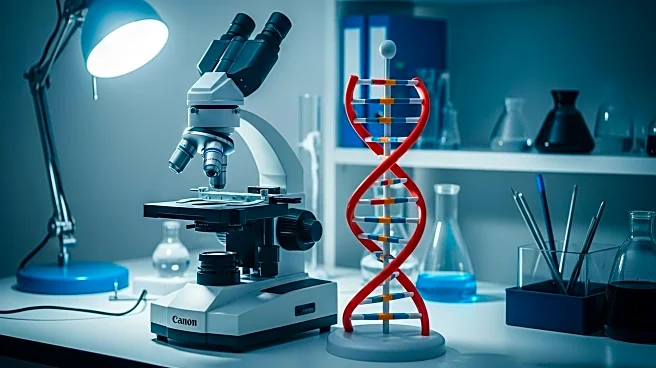What's Happening?
Biogen has announced a restructuring of its staff following the discontinuation of its adeno-associated virus (AAV) gene therapy projects. This decision is part of a broader cost-cutting initiative aimed at saving $1 billion by 2025. Approximately 20 employees were affected by the restructuring, with most being reassigned to other roles within the company. Biogen's head of research, Jane Grogan, emphasized a strategic shift towards 'pioneer modalities' and therapies that promise better patient outcomes. This move aligns with industry trends, as other companies like Vertex Pharmaceuticals have also pulled back from AAV projects.
Why It's Important?
Biogen's decision to halt AAV gene therapy work reflects a significant shift in the biotechnology sector, where companies are increasingly focusing on more promising and financially viable therapeutic modalities. This restructuring highlights the challenges faced by the AAV platform, including recent controversies and safety concerns. The move could impact Biogen's research and development strategy, potentially affecting its competitive position in the gene therapy market. For employees, this underscores the importance of adaptability and reskilling in a rapidly evolving industry.
Beyond the Headlines
The discontinuation of AAV projects by Biogen and other companies raises questions about the future of gene therapy technologies. While AAVs have shown promise, safety concerns and recent adverse events have prompted a reevaluation of their viability. This shift may lead to increased investment in alternative gene delivery methods and innovative therapeutic approaches. The industry's focus on 'pioneer modalities' suggests a broader trend towards personalized medicine and targeted therapies, which could redefine treatment paradigms in the coming years.









